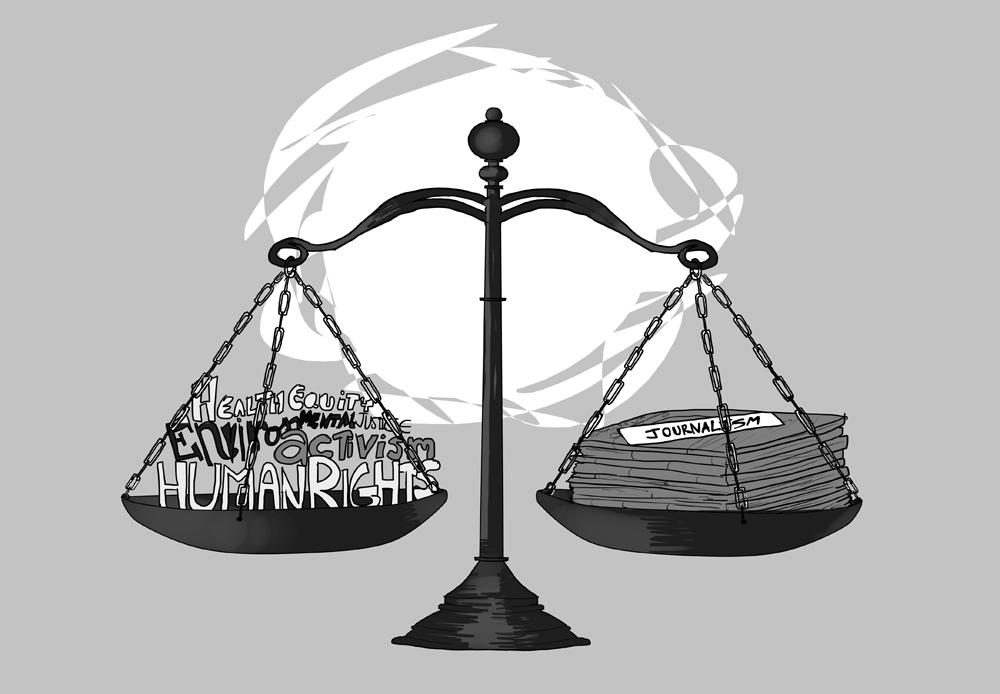Kanchi Uttamchandani | Assistant News Editor
Featured illustration by Jasmine Wiradharma
As an international student, I come from a country where student activism and politics are banned across university campuses and journalism has become a guise for promoting a corporate agenda.
Coming to York, colloquially referred to as a “social justice university,” I found a sense of freedom in expression and joined many social justice groups on campus in various leadership capacities.
I also ended up becoming the assistant news editor at Excalibur, York’s largest student newspaper. Given my involvement, many have branded me as playing a contradictory role of both an activist and a journalist.
I disagree with this characterization.
The terms “activism” and “media” mean different things to different people. The former could imply anything from justice and equality to radicalism and extremism while the latter could imply anything from truth and accountability to lies and propaganda.
Both terms can have widely contrasting connotations depending on factors involved and context of discussion, yet we can perhaps agree that a combination of the two generally provokes unease and cognitive dissonance among people.
While that may be true, it is just one perspective of looking at things. During my time at Excal, I have personally come to experience the converging influence of the two fields.
Journalists and activists are not enemies nor always at loggerheads with each other. Most of the time, our work is complementary and collaborative, not in the sense that journalists endorse any particular activist agenda, but rather that we consistently keep track of and report on any arising developments within activist groups. In short, we both need each other, regardless of our differences.
The idea of objectivity, in context of journalism, is very misplaced. Journalism, like activism, in many ways is agenda-driven. While we aim to offer unbiased, critical perspectives, one cannot deny that there are always dominant themes and angles, a by-product of stories with cracks left unexplored.
Student activism has the power to expose one to hot-button issues, ranging from anti-tuition fees campaigns, campus racism and sexual violence campaigns to international issues such as the Israel-Palestine controversy and other cases of nationalistic self-determination struggles.
While some may find certain campus politics disagreeable, it undeniably sparks a degree of critical thinking, which in itself is a sign of progress. Yet student politics is not immune to criticism, whether it be allegations of romanticizing and oversimplifying struggles or simply being written off as ineffective.
This is where we student journalists play a key role. Besides putting a spotlight on emerging issues, we indirectly give activist groups a greater impetus to act while maintaining a historic memory of community events through our extensive documentation.
Despite points of criticism, I think it is safe to say that both activism and journalism are inevitable outcomes of challenging the status quo in an unfair world, and they are here to stay. Both are united by common themes of community, shared networks and storytelling.
My point is to move beyond the concept of binary thinking, of pro- this and anti- that, labelling things as right and wrong and pigeonholing ideas into neatly packaged definitions. Instead, we should aspire to create a space where we can have honest and challenging discussions about our current paradigms, where we are constantly redefining our roles and open-heartedly embracing the conflict-ridden process of changing the world.




